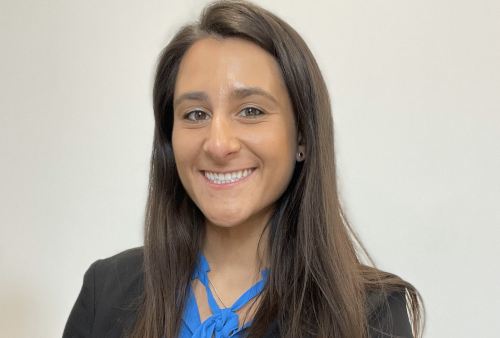Christiana Mones

Adventures in Employment - Christiana Mones
Christiana Mones is a 2L Seton Hall Law student. This past summer, she worked at the Catskill Watershed Corporation and, during Summer 2024, she will be a summer associate at Kelley Drye & Warren LLP.
What does the Catskill Watershed Corporation do?
The Catskill Watershed Corporation (CWC) assists New York City's Department of Environmental
Protection (NYCDEP) in administering programs in the Catskill Region that allow NYC
to maintain its Filtration Avoidance Determination (FAD) issued by the Environmental
Protection Agency. The FAD is issued to NYCDEP so long as the drinking water they
are providing to NYC residents meets certain standards, and allows NYCDEP to avoid
building a filtration and sanitation system which would cost several billion dollars.
CWC is NYCDEP's partner in the Catskill Region to implement stormwater and septic
programs to keep the groundwater clean and within EPA standards. CWC also acts as
a voice for the Upstate communities to provide them with economic opportunities so
the communities are not economically disadvantaged or displaced as a result of the
FAD. When NYCDEP began its mission of providing drinking water, NYCDEP built 5 reservoirs
in the Catskills, displacing thousands of local residents. In the aftermath of the
Clean Water Drinking Act, CWC, along with other regional organizations, acted to prevent
the complete eminent domain of the area. NYCDEP has the largest unfiltered water supply
in the US.
How was your internship experience at the Catskill Watershed Corporation?
My experience with the Catskill Watershed Corporation was phenomenal. Aside from the
fantastic location in the Catskill Mountains, the internship was incredibly personalized.
Being the only legal intern, I got to work very closely with the in-house attorney
and the executive director, as well as interact with the various program staff.
What department(s) did you work in?
My assignments all came from the in-house attorney, mostly regarding legal documents
or research. However, I was able to spend time with the Economic Development Program
and the Stormwater Program.
What kinds of assignments did you do?
While at CWC, I re-wrote program rules governing the implementation of CWC's stormwater
program, taking care to make sure they aligned with CWC's various contracts with NYCDEP.
I drafted Requests for Proposals for building demolitions and other projects CWC was
involved with. Additionally, I was able to sit in on contract negotiations and loan
closings, and review court documents from an ongoing tax litigation. Some of the non-legal
activities I experienced were going to construction or demolition sites, reviewing
contractor's plans, and observing the process of securing a loan.
What did you learn about Energy and Environmental Law?
This summer, I learned a lot about the interaction between Federal, State, and local
environmental laws, rules, and regulations, and how much of a role politics plays
in advancing goals. I was able to see how environmental law interplays with numerous
other areas of law while still striving to incorporate science, technology, and engineering.
For example, the Supreme Court ruling in Sackett v. EPA narrowed protections for federal
wetlands, whereas the New York State Legislature has been pushing legislation to increase
the protection of State wetlands. Simultaneously, NYCDEP has been experimenting with
Light Detection and Ranging (LiDAR) to determine wetlands boundaries, which may be
monumental in determining what areas of the Catskills are able to be developed. It
is going to be interesting to see how the development of the Catskills is going to
depend on the interplay of the federal courts and government and state legislation,
as well as the potential adoption of LiDAR.
Would you recommend this internship to other students?
I would absolutely recommend this internship to other students. Although it is not
always environmental law, it involves a lot of different areas of law and I was able
to get exposure to administrative law, contract law, construction law, real estate,
zoning, and so much more. Although the internship is in Arkville, NY, which is about
two and a half hours from Newark, it was great being able to spend the summer hiking
and camping in the mountains after work. Being away from home and in a very rural
area isn't for everyone, but I personally loved the respite from the City and suburbs.
What was the best part about your internship experience?
The best part about my internship experience was the people I was working with. Although
it was busy season and was stressful, those working at CWC were always very welcoming
and kind. From the secretary to the maintenance department to the executive director,
they were all interested in who I was, what I was interested in, and where I wanted
the internship to go. If there was something that was going on in one department,
they would always invite me along. For example, I was able to tour the inside of an
abandoned hotel because the new owner was looking to secure a loan through CWC's Economic
Development Program. When the women in the office went to yoga or a paint-and-sip,
they always included me, and I feel like I made some fantastic friends while I was
there.






